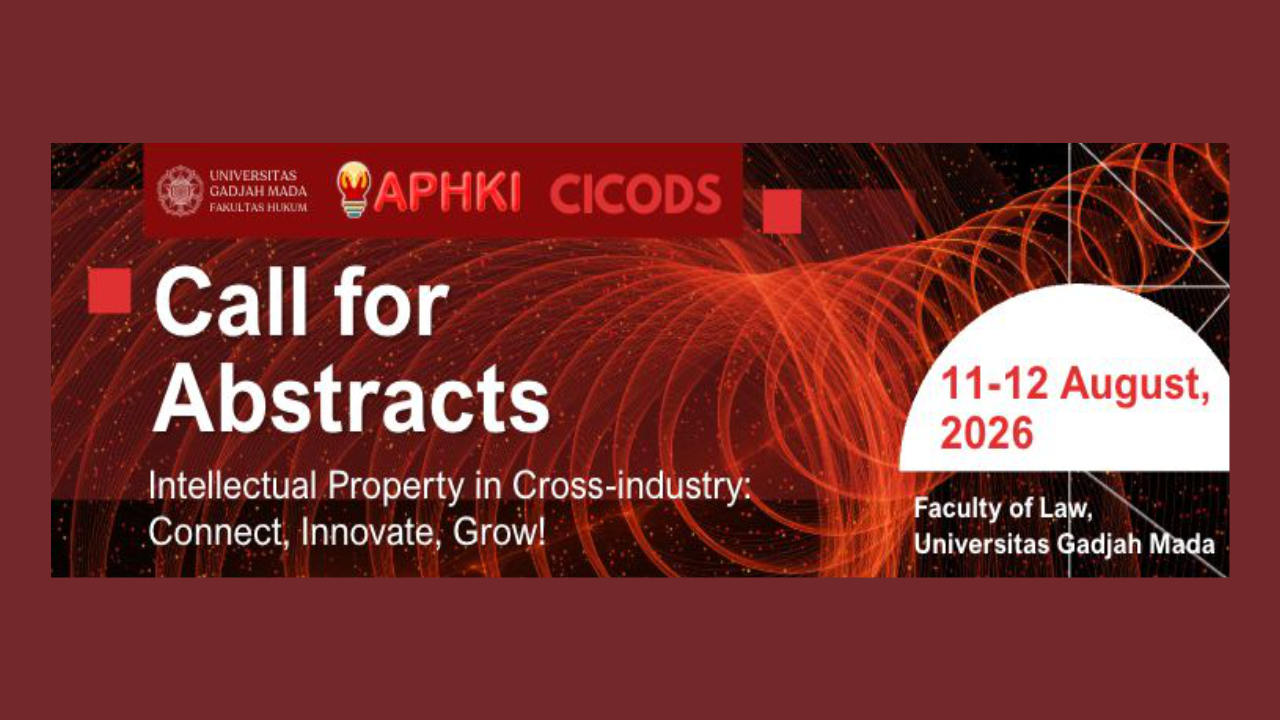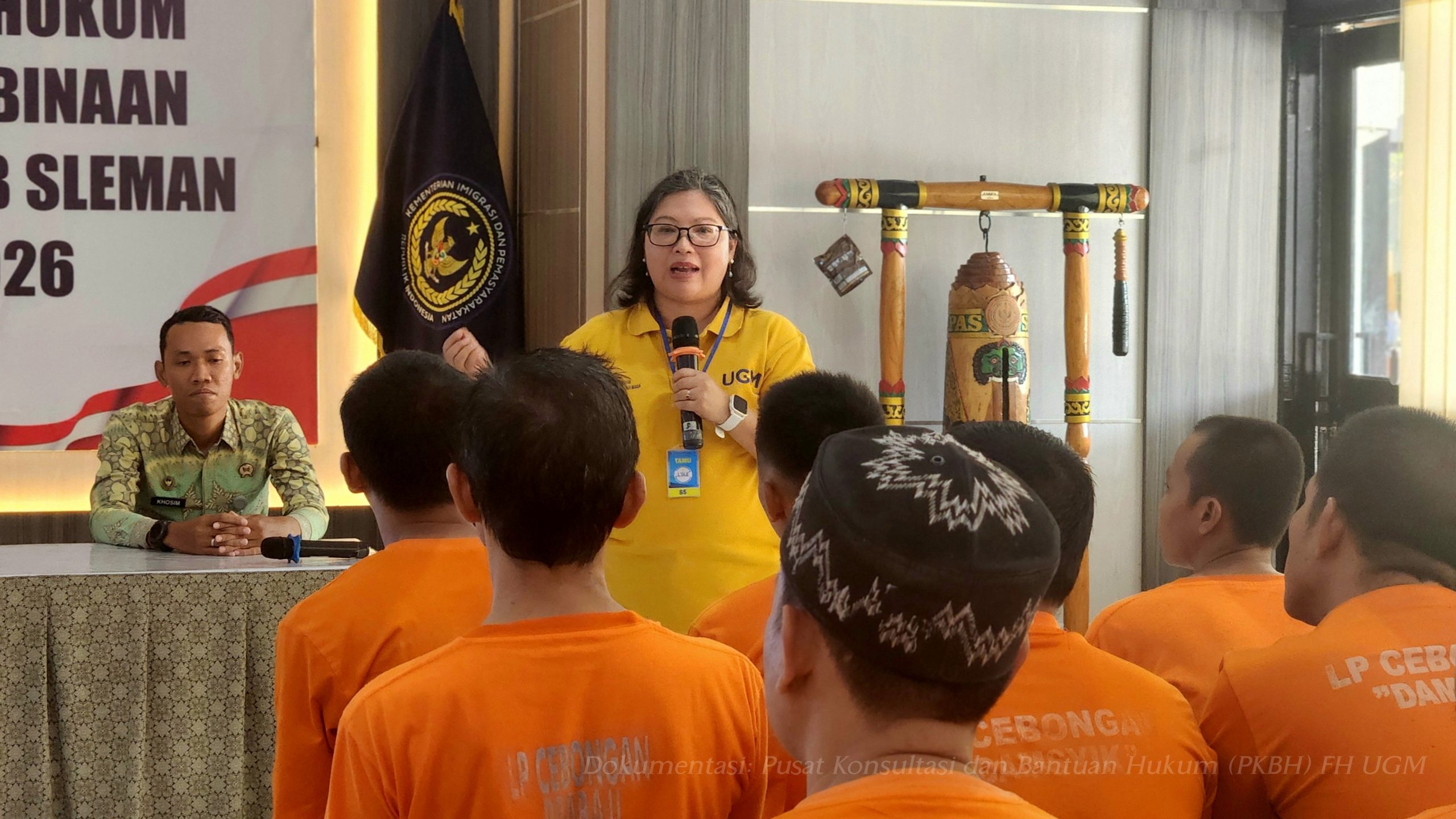The Muslim flFamily of the Faculty of Law, Universitas Gadjah Mada (KMFH UGM) again presented legal counseling through the relaxed afternoon (Santai Siang) program on Radio Republik Indonesia (RRI) Pro 2 Yogyakarta on Wednesday (3/09/2025). This activity is part of the UGM Faculty of Law Community Service grant initiated by two students, namely Azzahra Dewi Santika class of 2023 and Okta Amaliya Fitriana class of 2024.
With the theme “Not Child’s Fault: Tracing the Rights and Status of Illegitimate Children in Two Legal Systems”, this legal counseling presented Prof. Dr. Hartini, S.H., M.Si., professor of Islamic Law Faculty of law UGM, which provides a comprehensive explanation related to the status of illegitimate children within the framework of Islamic law and the dynamics of national law.
In the perspective of Islamic law, which is contained in the compilation of Islamic law (KHI), illegitimate children are asserted to only have a family relationship with their mother and mother's family. This provision is based on the basic principle of Shari'a that nasab is a right born of legal marriage. Therefore, a child born out of a relationship outside of marriage does not have a civil relationship with his/her biological father, including in terms of inheritance. This principle also affirms the legal position of marriage in Islam as the only legitimate way to give birth to family relationships and civil rights.
On the other hand, in the context of national law, the decision of the Constitutional Court Number 46/PUU-VIII/2010 opens space for extramarital children to be recognized as having a civil relationship with their biological father as long as it can be proven scientifically and legally. The ruling is intended to expand the protection of children's rights, especially in matters of maintenance and inheritance. However, its application causes inconsistency with Islamic law in force in the religious court environment. This difference is a real mirror of the existence of legal pluralism in Indonesia, which on the one hand recognizes Islamic law as a guideline for the people, while on the other hand adapts to national legal principles that ensure the protection of children's rights.
In addition to differences in nasab status, this counseling also discusses the forms of legal protection that can be taken, one of which is through mandatory Wills. This mechanism is a middle ground so that children out of wedlock still obtain the right to living expenses until adulthood, even though they are not fully recognized as heirs in Islamic law. The obligatory will is seen as a solution that does not violate the provisions of the Shari'a, but at the same time provides protection for children born outside of marriage.
The question and answer session with the listeners highlighted some actual problems. One of them is about the possibility of illegitimate children obtaining inheritance rights when their biological father does not give recognition. The answer to this question exposes the legal complexities, because although biological evidence can be presented, religious courts hold that KHI does not confer a paternal lineage. Another question relates to how to prevent social discrimination against extramarital children. In this regard, it is important to emphasize that Islam insists that the child cannot be blamed for the circumstances of his birth, so fair and loving treatment must still be given. However, the main effort is to prevent the birth of children out of wedlock by strengthening the understanding of law, morals, and religious values in the community.
This legal counseling activity is also closely related to the achievement of the Sustainable Development Goals (SDGs). The theme aligns with SDG 3 on good health and well-being, as it raises awareness of the social and psychological impacts that children born out of wedlock may experience if they are not adequately protected. In addition, the activity supports SDG 16 on peace, justice, and strong institutions by providing legal understanding that promotes child protection while affirming Islamic law values as part of the nationally recognized legal system.
Furthermore, this counseling contributes to SDG 4 on quality education, as it serves as a medium of legal literacy for both students and the wider community. It is also relevant to SDG 5 on gender equality, considering that many cases involving children born out of wedlock directly affect women, both as mothers and as individuals bearing social stigma. Equally important, the program supports SDG 10 on reduced inequalities, by encouraging society to treat children born out of wedlock fairly and without discrimination, ensuring their rights are protected within both legal and social frameworks.
Through this legal counseling, KMFH UGM seeks to provide balanced education for the community, namely by emphasizing the importance of understanding Islamic law as a normative guideline for people as well as realizing the dynamics of national law that is developing. This activity is expected to foster collective awareness to treat children out of wedlock without discrimination, while continuing to reinforce religious values so that marriage remains the main foundation in giving birth and raising children. Thus, the ultimate goal of this counseling is to realize a just society, mutual respect, and in line with the principles of Islamic law and the National Constitution.
Author: Azzahra Dewi Santika (Student Legal Counseling Grant Recipient Team)








